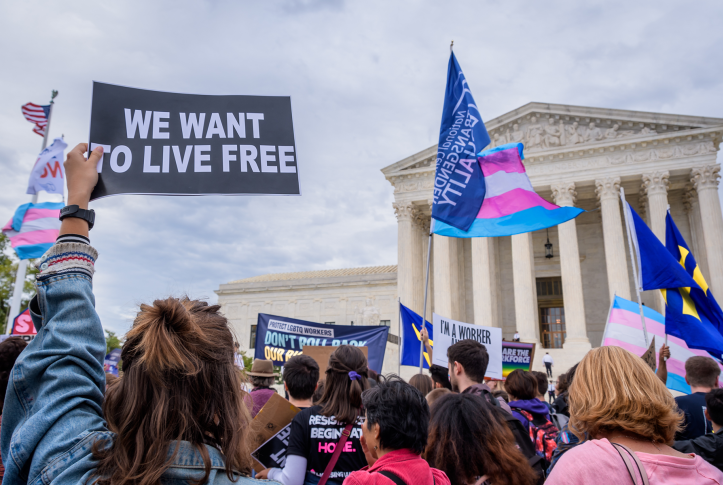On July 25, 2022, the Biden administration issued a sweeping new proposed rule on Section 1557 of the Affordable Care Act (ACA), the law’s primary nondiscrimination requirement. The rule would reverse several Trump-era policies that sought to roll back health care civil rights protections first introduced during the Obama administration. It also would extend these safeguards in a number of ways.
While the rule will not be finalized for some time, it could help advance equity and combat discrimination in health care.
Brief Background
Under Section 1557, an individual cannot be excluded from participation in, denied the benefits of, or subjected to discrimination on the basis of race, color, national origin, age, disability, or sex by any health program or activity that receives federal financial assistance. This requirement additionally extends to any health program or activity administered by the federal government or ACA entities like the health insurance marketplaces.
Section 1557 comes with a long history of rulemaking and litigation. The first rule, adopted under the Obama administration in 2016, included requirements to help ensure that individuals with limited English proficiency have meaningful access to health care services, that people with disabilities receive effective communications regarding their coverage and care, and that transgender people do not face discrimination in coverage or care. Parts of this rule were challenged in court and ultimately set aside. In 2020, the Trump administration finalized its own rule, which eliminated many of the 2016 policies. More lawsuits followed and parts of the Trump-era rule were then invalidated.
In 2021, following a Supreme Court ruling, the U.S. Department of Health and Human Services (HHS) announced it would interpret Section 1557’s ban on sex discrimination to include sexual orientation and gender identity. Three lawsuits challenge that guidance.
Changing the Trump-era rule was a high priority for many health care stakeholders. The Biden administration has also used the rule amendments to clarify its view of nondiscriminatory access to coverage and care.
Mirroring the 2016 Rule
The proposed rule, which mirrors significant portions of the Obama-era rule while also reversing major parts of the 2020 rule, would:
- Expand the scope. As with the 2016 rule, HHS would reapply Section 1557 to many more insurers and other health care entities that receive federal funds, as well as to all HHS health programs and activities. The new rule would apply to each entity’s entire business, not just the part that receives federal funds.
- Restore explicit protections based on gender identity and association. HHS would restore provisions that bar providers and insurers from denying or limiting access to coverage or care based on gender identity. HHS would also explicitly prohibit discrimination based on the race, color, national origin, sex, age, or disability of an individual that person is in a relationship with or otherwise associated with.
- Ensure notification of rights. Entities would once again have to notify individuals about Section 1557’s nondiscrimination protections as well as the availability of language assistance services (e.g., written translation or oral interpretation) and auxiliary aids and services (e.g., phones compatible with hearing aids).
- Revise religious exemptions. HHS commits to respecting conscience and religious freedom laws when applying the new rule but would not maintain a broad Trump-era religious exemption.
- Reinstate nondiscrimination standards in federal programs. HHS would readopt explicit protections for LGBTQ people in Medicare, Medicaid, and marketplace regulations; prior protections were eliminated in the 2020 rule.
Looking Beyond the 2016 Rule
The Biden administration also proposes new policies that would go beyond the 2016 rule, among them:
- Extending the rule, for the first time, to Medicare Part B providers. HHS would newly apply Section 1557 to Medicare Part B payments that apply to physicians and other outpatient providers who are currently exempt, unless they receive federal funds from other sources.
- Clarifying the definition of sex and prohibiting discrimination based on marital, family, or parental status. HHS would explicitly prohibit discrimination on the basis of sex stereotypes, sex characteristics, sexual orientation, gender identity, and pregnancy or related conditions. Some of these were included in the 2016 rule. HHS also asks for comment on the impact, if any, of the Supreme Court ruling in Dobbs v. Jackson Women’s Health Organization and whether HHS should adopt specific provisions on pregnancy or related conditions.
- Extending the rule to clinical algorithms and telehealth. HHS proposes, for the first time, to prohibit a covered entity from discriminating through the use of clinical algorithms in health care decision-making and in delivery of telehealth services.
- Promoting compliance through new policies, procedures, and training. Entities would have to adopt Section 1557–specific policies and procedures and train employees on these new standards.
- Creating a process for entities to voice objections. Entities that believe parts of the rule, as applied to them, would violate their rights under federal conscience or religious freedom laws could use a new process to notify HHS of their objection.
What Comes Next?
The proposed rule is only the first step. HHS will accept comments until October 3 and then consider those comments before issuing a final rule — a process that will take several months. Given the history of litigation over Section 1557 and these issues more broadly, the ultimate fate of the Biden administration’s proposed rule is difficult to predict. Even so, with the pandemic laying bare stark inequities, and with restrictions on abortion services and gender-affirming care spreading across the country, the proposed rule comes at an important moment for health care and for civil rights.


